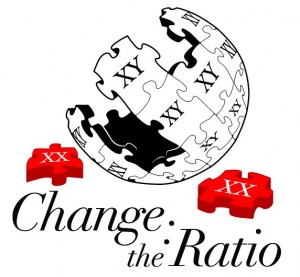
In my previous post, Cargo Cult Editing, I used the Wikipedia page for Kate Middleton’s wedding dress and the skirmish that took place over it, as an example of how viewpoint and perspective can impact the content of Wikipedia.
Now I’ll share my own personal Wikipedia battle…that I like to build up as an epic clash, when in reality it was tantamount to a 2-second spitball fight.
For more than two years, if you visited the Man page in Wikipedia, you would have found the following section outlining (7) characteristics of masculinity:
- Physical — virile, athletic, strong, brave. Unconcerned about appearance and aging;
- Functional — provider for family, defender of family from physical threat;
- Sexual — sexually aggressive, experienced. Single status acceptable;
- Emotional — unemotional, stoic, never crying;
- Intellectual — logical, intellectual, rational, objective, practical;
- Interpersonal — leader, dominating; disciplinarian; independent, free, individualistic; demanding;
- Other Personal Characteristics — success-oriented, ambitious, aggressive, proud, egotistical, moral, trustworthy; decisive, competitive, uninhibited, adventurous.
When I came across the page in May of 2010, I was a little surprised to read characteristics such as “unconcerned about appearance and aging” and “provider for family.”
In fact, almost all the qualities surprised me since they seemed so utterly out of date, and frankly, just not true. But then I looked at the source: 1974. 1974!
A lot had changed in the past 35 years, with tons of published evidence to refute almost every single one of the listed characteristics. And although we can have a great social discourse over what it means to be “masculine” – the debate belongs on the Masculinity page.
So I removed the section. And entered my first “edit war” in Wikipedia with a user by the name of Martin Hogbin who reverted my change within minutes.
Like any good Sun Tzu student, I was prepared for battle. Of course I could have gone a more diplomatic route by taking the disagreement to the discussion page, but in this case, the entry was just plain wrong. And I was willing to fight.
I had my arguments and sources ready and my backup Wikipedia editors (@robotchampion and @kirbstr) primed to to jump in on the discussion should I need them.
I reverted Martin’s reversion, waiting for a response. And then, just as fast as it had begun, it was over. My edit prevailed.
The point of this story is to show what happens, when a page as popular as the Man page (which receives ~30,000 views per month), has very little diversity in its editor base. What would a 16-year old girl think upon reading the above characteristics, or 16-year old boy? Do they equally apply to homosexual men, and men of various ethnicities, nationalities, ages, religions and vocations?
The answer is no. Is the Dalai Lama not “masculine” or any less of a “man” because he is not sexually aggressive or experienced?
Wikipedia needs more diversity, for the simple reasons of perspective and objectivity. When 1X57 did the Women Who Wiki workshop, I showed the attendees, mostly women with one male, the historical Man page with the above characteristics listed and asked them if they agreed with them. The answer was unilaterally no.
So did the thousands of viewers who visited the Man page not see what I saw? Or did they simply not know how to do anything about it?
Wikipedia is the #1 open knowledge resource and the 7th most popular website, in the world. It needs contributors of all genders, ages, and races to be the great public resource that it is.
In my next and final post, I’ll discuss how more people can get involved to improve diversity and become part of the great community that is Wikipedia.
TO BE CONTINUED…
You’re on to something: We don’t have a lot of good editors on Wikipedia, really only a few thousand. Martin Hogbin certainly did the right thing, “When you are wrong, quit.” Stephen Gaskin said that.
This is a typical situation, even after 10 years; unless an articles has received the attention of several good editors, some of it recent, it is likely to be pretty poor. It may be better than any other brief treatment of the subject on the internet, but objectively, not very high quality, or even misinformation.